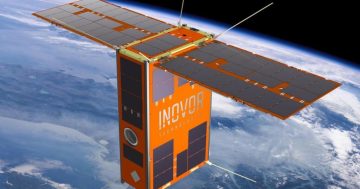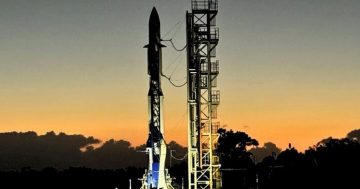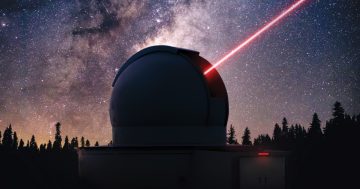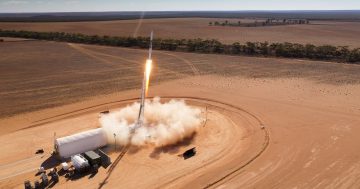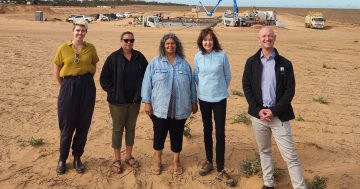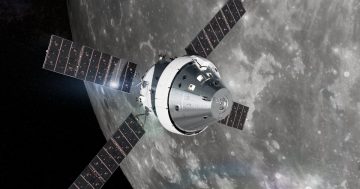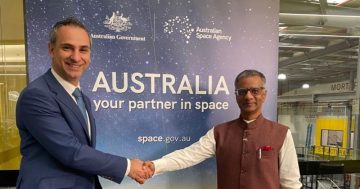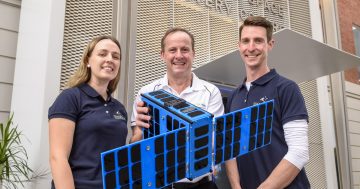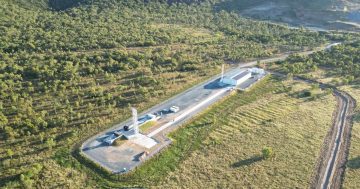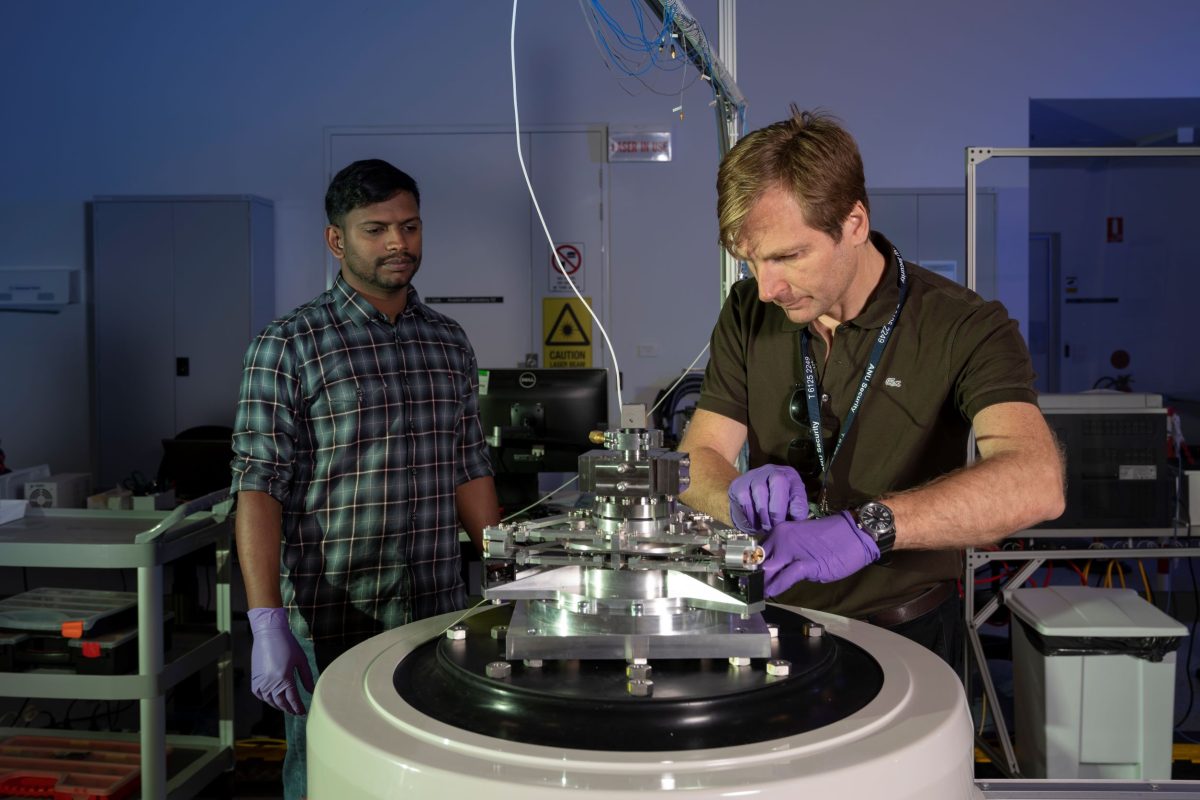
Dr Joice Matthew and centre director Eduardo Trifoni at the ANU National Space Test Facility. Photo: ANU.
Australia’s space industry is set to skyrocket as ordinary people become more reliant on space-based technology in their everyday lives.
Space is not just about rockets and astronauts; it provides solutions for society’s biggest challenges and impacts how we communicate, move around, stay healthy and produce food.
Australian National University (ANU) Institute for Space (InSpace) director Professor Anna Moore said although many of us might not realise it, we were “using space” every day.
“Space technologies are integral to hundreds of activities in our personal lives, and to our national needs,” she said.
“Because of how integral these technologies are to our daily lives and our national economy, we are seeing exciting innovation and growth nationally, and also right here in Canberra.”
ANU hosts more than $200 million worth of space infrastructure that spans disciplines as diverse as space biology, space medicine and Earth observation.
Professor Moore said researchers were looking at how to grow plants in space to assist with drought-resistant agriculture on Earth, as well as how treating astronauts through digital twins could be applied to remote medicine or aged care in the home.
A ground station is being built to support laser communications for NASA’s return to the moon, and the latest developments in gravitational measurements are being developed at ANU to support the agency’s satellite programs to track climate change.
For our everyday services to continue and ground-breaking research to be carried out, more and more satellites will need to be launched into space.
The new Space Centre Australia (SCA), planned for Far North Queensland and headed up by Canberra’s James Palmer, aims to provide much-needed launching facilities for satellites and rockets. It’s already attracting interest from the private sector and governments around the world, including the USA, UK and Europe.
SCA business manager for Defence, Space and Aviation Ian Eccles said to satisfy “huge global demand” in the growing satellite industry, more launch services were needed – but locations in the northern hemisphere were limited.
“Australia is in a prime position to play a significant role in the future of the space sector by providing a state-of-the-art space launching facility that is close to the equator,” he said.

Almost everything in our lives is connected to space. Image: SCA.
“Australia has wide open spaces, high-level education facilities – like ANU – and a stable government. This put us in the box seat to fill a gap in the demand for commercial, government and private launches.”
Mr Eccles said the SCA launch facility would cater for “anybody who wants to launch anything into space”, from small satellites into the Earth’s orbit to heavy launches of probes and rockets out into interstellar space – to the moon and beyond.
With the global space economy predicted to take off over the next 20 years, he said Australia was in an ideal position, geographically and politically, to play a significant role in the sector’s future.
“The global space sector is set to nearly triple from US$450 billion currently to US$1.1 trillion by 2040,” Mr Eccles said.
SCA is collaborating with universities and school students to prepare them for entry into the space sector of the future, whether that’s through manufacturing, technology, research and development or sitting in the hot seat pressing the ‘go’ button on a launch.
Mr Eccles said the future of the space industry offered exciting opportunities for Australians, and the development of SCA would provide an economic boost, nationally and for Queensland.
He said the space industry was akin to a “fledgling mining industry” in Australia, but “without the environmental damage”.
“There’s huge potential for Australia to tap into this market and reap the economic rewards, as a country and as individuals.
“It’s all driven by the fact that just about everything we do is connected to the space industry.”
Space Centre Australia will be Australia’s first large-scale, multi-use spaceport and strives to become a global leader in the space industry.
Original Article published by Katrina Condie on Riotact.


